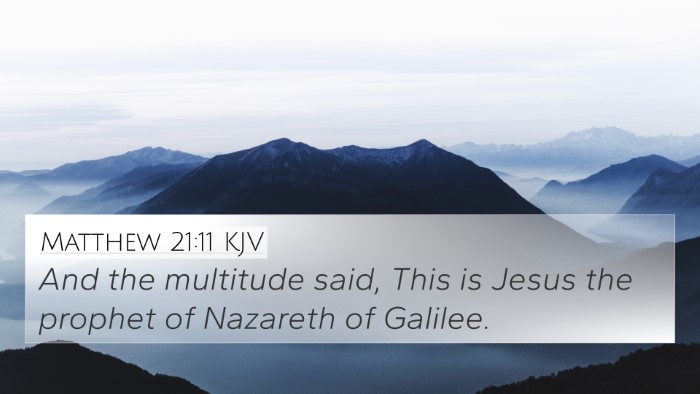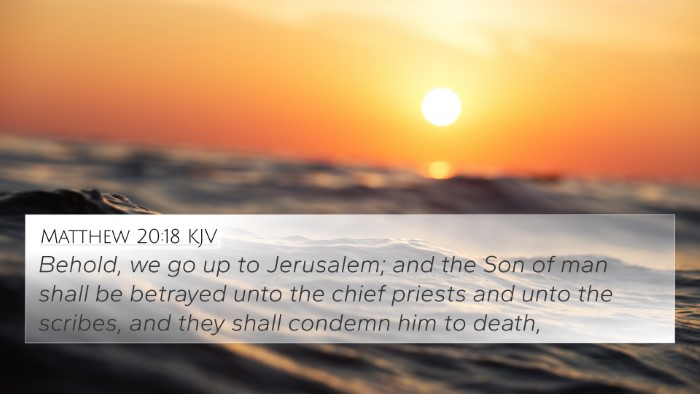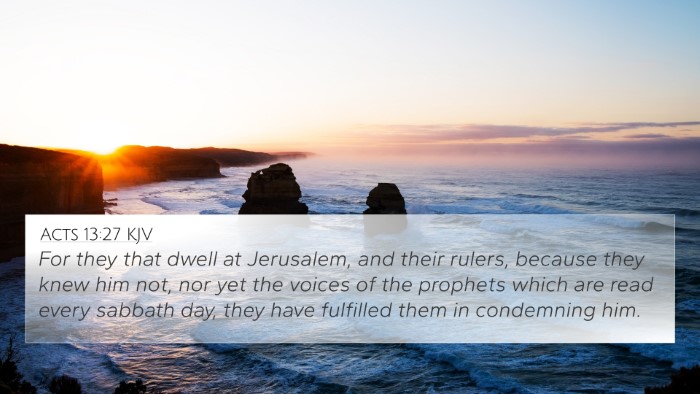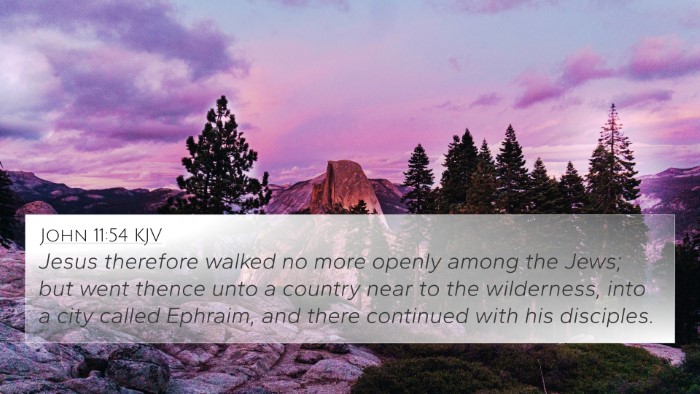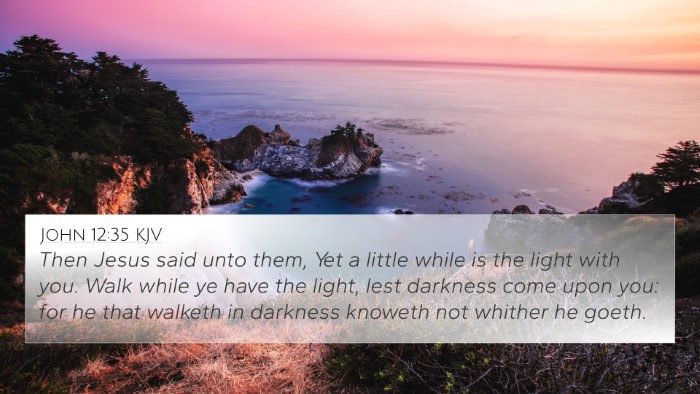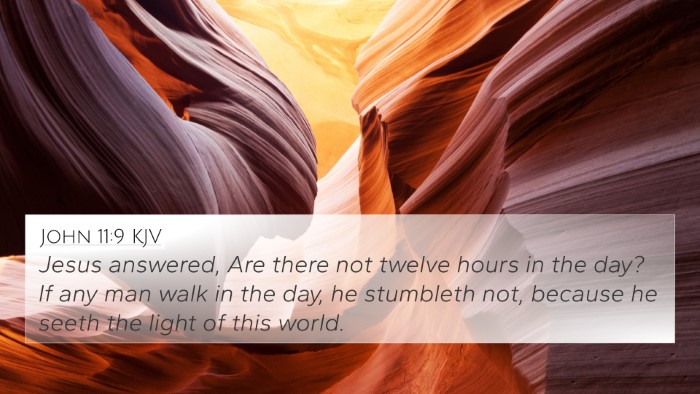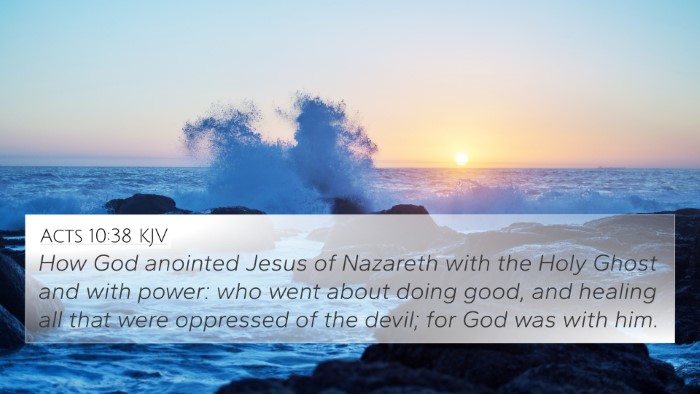Understanding Luke 13:33
Bible Verse: Luke 13:33 - "Nevertheless I must walk today, and tomorrow, and the day following: for it cannot be that a prophet perish out of Jerusalem."
Summary of Meaning
This verse expresses the inevitability of Jesus's mission and His determination to continue despite the looming threats against Him. It emphasizes the prophetic role Jesus fulfills, drawing attention to the fate of prophets who are often unacknowledged in their own land.
Verse Analysis
- Prophetic Mission: Jesus acknowledges His identity as a prophet, which aligns with the prophetic tradition in Israel. Prophets often faced opposition and danger, particularly from their own people.
- Divine Purpose: The phrase "must walk" indicates a commitment to His path, underscoring the necessity of His journey towards Jerusalem and ultimately towards His sacrifice.
- Foreshadowing of Suffering: The statement hints at the suffering that He will endure, as seen historically with other prophets like Jeremiah or Isaiah, highlighting the theme of prophetic persecution.
Connections to Other Scriptures
This verse can be understood more deeply through its connections to other biblical texts. Here are several cross-references that relate to the themes presented in Luke 13:33:
- Matthew 23:37: "O Jerusalem, Jerusalem, thou that killest the prophets, and stonest them which are sent unto thee!" - Similar to Luke 13:33, this verse emphasizes the rejection of prophets in Jerusalem.
- Luke 11:49: "Therefore also said the wisdom of God, I will send them prophets and apostles..." - Jesus acknowledges the continuing pattern of rejection faced by God’s messengers.
- John 15:18-20: "If the world hate you, ye know that it hated me before it hated you." - This highlights the hostility towards those who represent Christ.
- Acts 7:52: "Which of the prophets have not your fathers persecuted?" - Stephen reminds the Jewish audience of their historical pattern of rejecting God’s prophets.
- Matthew 5:10: "Blessed are they which are persecuted for righteousness' sake: for theirs is the kingdom of heaven." - Jesus links the suffering of prophets with the promise of heavenly reward.
- Micah 7:4: "The best of them is as a brier: the most upright is sharper than a thorn hedge." - This passage illustrates the treacherous terrain for prophets and their messages.
- Jeremiah 26:8-9: "And it came to pass, when Jeremiah had made an end of speaking all that the Lord had commanded him to speak..." - Reflects on the persecution faced by Jeremiah, mirroring the fate that awaits Jesus.
- Luke 9:31: "Who appeared in glory, and spake of his decease which he should accomplish at Jerusalem." - This alludes to Jesus's ultimate calling and sacrifice which takes place in Jerusalem.
- Revelation 11:10: "And they that dwell upon the earth shall rejoice over them..." - Speaks to the rejection and death of God’s witnesses, which can be tied back to the fate of Jesus.
- Isaiah 53:3: "He is despised and rejected of men..." - A prophetic reference to the suffering servant who experiences the rejection of His own people.
Conclusion
Luke 13:33 offers profound insight into Jesus's mission and the nature of prophecy within the context of His ministry. By understanding the connections with other scriptures, one gains a clearer insight into the risks and responsibilities of prophetic work and the often harsh realities faced by those who proclaim God's truth. The verse serves as a reminder of the perseverance required in the face of rejection and the commitment to follow God's divine purpose.
Further Study Tools
For those wanting to explore further, there are various tools for Bible cross-referencing available such as:
- Bible concordance
- Bible cross-reference guide
- Cross-reference Bible study resources
- Bible chain references
- Comprehensive Bible cross-reference materials
Using Cross-References for Study
Understanding how to effectively use Bible cross-references can enhance your study:
- How to find cross-references in the Bible: Look for linked themes or words in the margin of your text.
- Identifying connections between Old and New Testament: Trace prophetic texts to their New Testament fulfillments.
- Comparative study of Pauline epistles: Explore themes of suffering, grace, and community.
Ultimately, the message of Luke 13:33 resonates across the scriptures, underscoring the enduring nature of God’s call to those who are willing to follow, even in the face of adversity.



